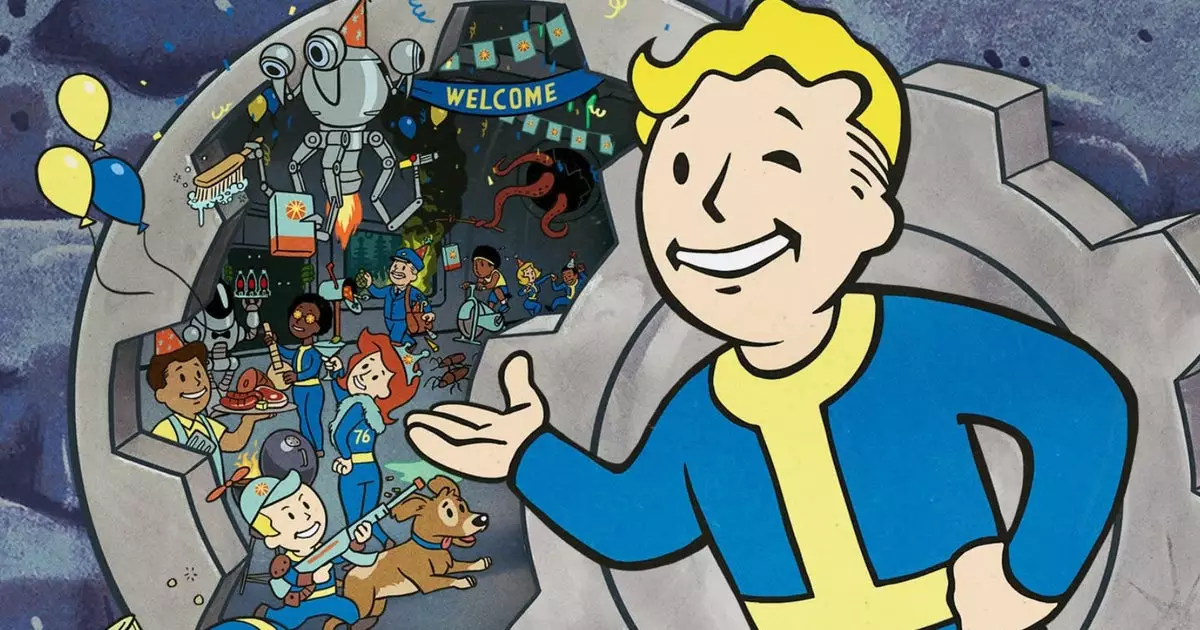The gaming landscape has always been bustling, not just from the pixels that animate screens but from the people powering these creations. Recent developments at ZeniMax Media, the publisher behind iconic franchises like Elder Scrolls, Doom, and Fallout, reveal a deepening conflict between workers and corporate interests. The emergence of ZeniMax Workers United shows that the quest for fair wages and improved working conditions is far from a mere footnote in gaming history—it’s now a main chapter, underscoring the need for systemic changes in the industry.
With nearly 300 workers represented, the union’s resounding vote for potential strike action against parent company Microsoft underlines an imperative that cannot be ignored: workers are tired of being undervalued. They are no longer willing to accept subpar wages in an industry poised to create billion-dollar revenues annually. The call for a strike is not just about financial remuneration; it’s also about respect, acknowledgment, and recognition of the crucial role these workers play in the multi-trillion-dollar gaming industry.
Stalled Negotiations and Workers’ Rights
Negotiations between unionized workers and Microsoft have dragged on for nearly two years, without significant progress toward resolving fundamental issues. Workers have voiced their concerns over pay, remote work options, and the growing trend of outsourcing essential tasks, like game testing. Despite a “neutrality” agreement meant to facilitate union representation post-acquisition of Activision-Blizzard, Microsoft’s actions suggest otherwise.
When unions are forced to take such stark measures as voting for a strike, it’s a sign that corporate leadership may not fully grasp the breadth of workers’ dissatisfaction. The union’s demands are straightforward yet crucial: better wages, improved workplace conditions, and sustainable employment practices. The frustrations aired by ZeniMax workers reflect a broader sentiment in many industries, where employees feel undervalued despite their companies’ thriving financial health. This pressing issue raises a fundamental question: why is it so difficult for large corporations to equate their profitability with fair labor practices?
The Human Cost of Corporate Decisions
Zachary Armstrong, a senior QA tester, articulated a concern that resonates deeply: the mismatch between wages and the rising cost of living is forcing employees to pause their lives. When individuals must sacrifice their personal aspirations—like starting families—due to financial uncertainty, it raises ethical concerns about what the gaming industry values more. These workers are not just cogs in a machine; they are integral to the creation of beloved games that enrich countless lives.
Aubrey Litchfield, an associate QA tester, adds another layer to this conversation: the irony of a multi-trillion-dollar company resisting the call for basic living wages is perplexing. It should not take an overwhelming vote for strike action for employees to receive what is rightfully theirs. The allegations of minimal wages without any benefits highlight a wider problem of labor rights across the tech landscape. Employees are pushing back against arrangements that prioritize corporate expansion over individual livelihoods, spotlighting a dire need for reform.
Industry-Wide Implications
The waves of unionization efforts at Microsoft-owned companies indicate a paradigm shift that could reshape the industry. The establishment of unions at Bethesda Game Studios and ZeniMax Online Studios represents more than a single effort—they embody a collective recognition by workers of their own power. Unions like ZeniMax Workers United and others are responses to a series of larger technological pressures, including the rise of generative AI. As firms invest billions into AI technology—which, while potentially transformative, poses threats to job security—a sense of urgency mounts among employees.
This change in mindset signals a turning point in the industry’s cultural narrative. Workers are raising their voices, demanding not just to be heard but to be respected as essential contributors to the gaming ecosystem. What has become increasingly clear is that the future of gaming cannot be built on the backs of underpaid workers. The outcome of these negotiations and potential strike actions may not only reshape ZeniMax Media but set a precedent that could ripple throughout the entire gaming industry.
Ultimately, while the struggle at ZeniMax remains unresolved, it stands as a shining example of worker solidarity in the face of corporate indifference. The escalating demands for equitable treatment reflect a new era in which the gaming community—comprising developers, testers, and players alike—will not accept anything less than fair representation in the environments where their passions are nurtured.


Leave a Reply